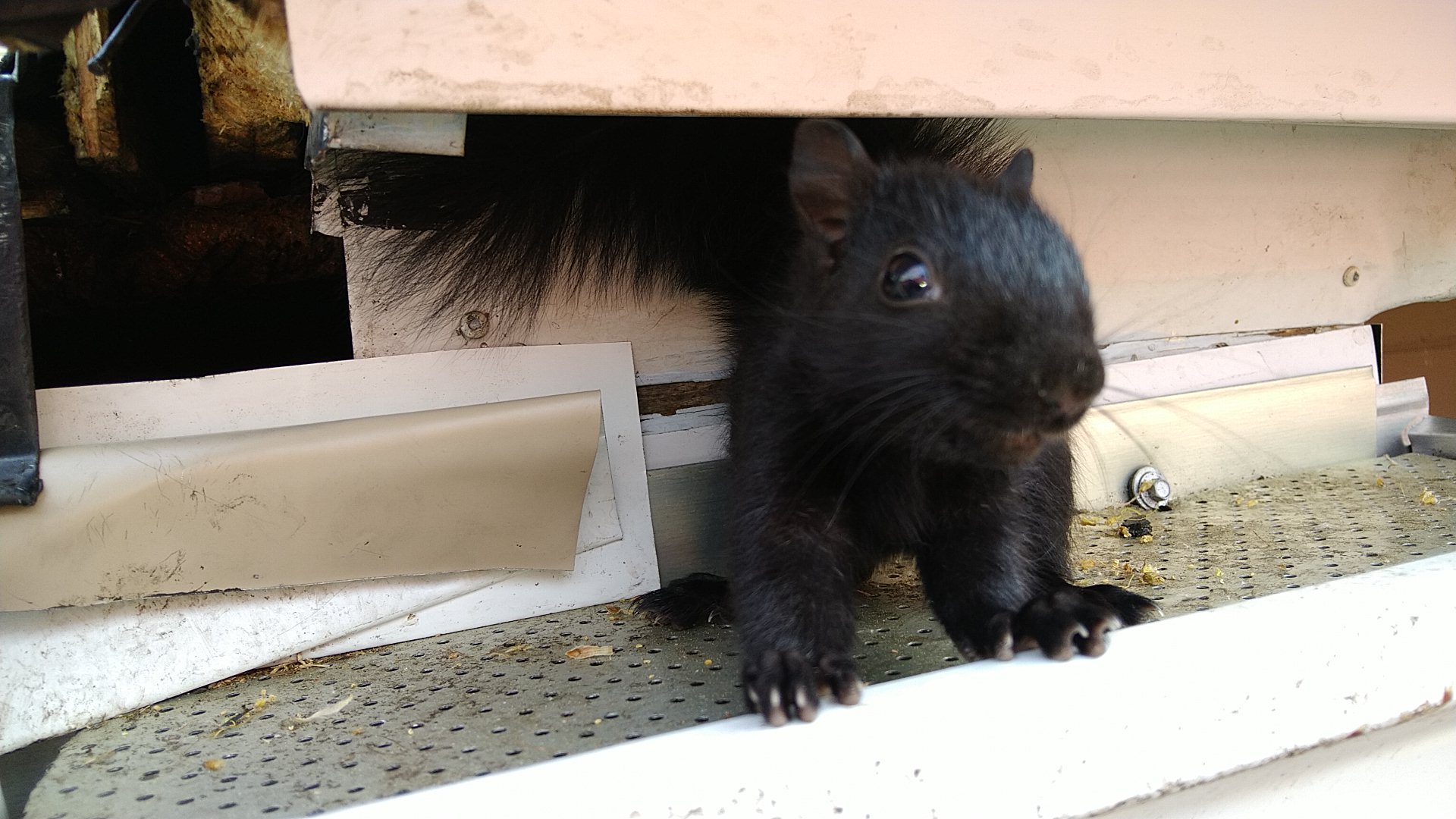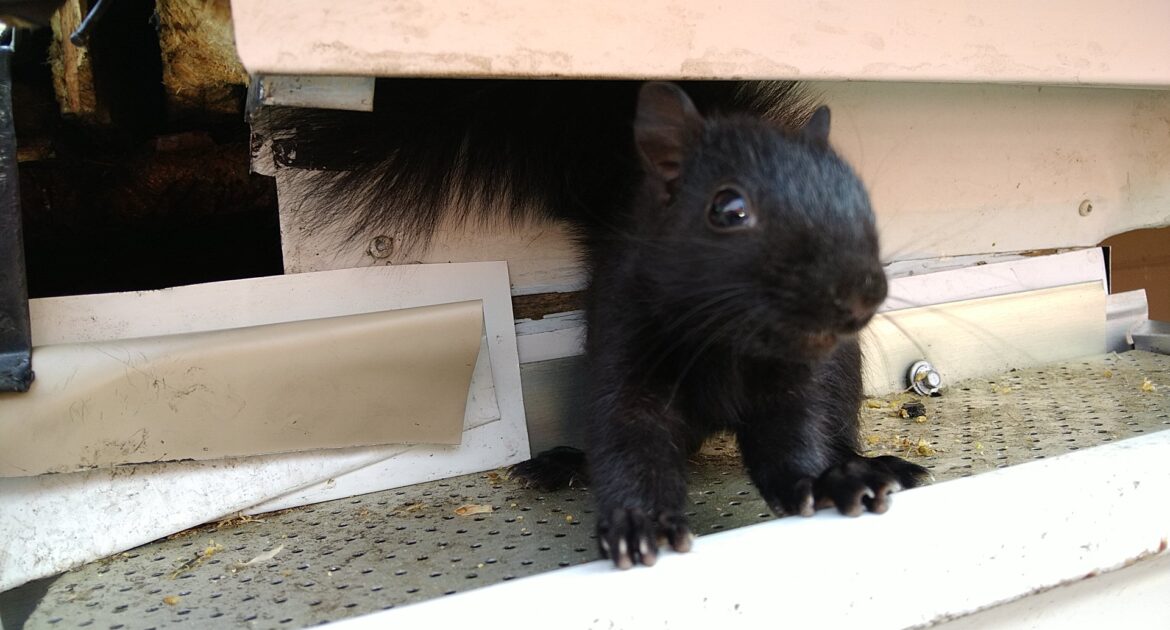Squirrels are fascinating creatures that bring a touch of nature to our suburban lives. However, as a homeowner, it’s important to understand the challenges these animals face and the impact they can have on your property. At Skedaddle, we often receive inquiries about like “what is the life expectancy of a squirrel” and what causes squirrels to die. While these questions might seem simple, the answers reveal much about the natural and urban environments these animals inhabit.
Squirrels are agile and adaptable, thriving in diverse habitats, including bustling urban areas like Peachtree Corners. Despite their adaptability, these animals often face threats that can significantly shorten their lives. On average, a squirrel’s life expectancy in the wild is around six years, although many live much shorter lives due to various factors.
Understanding what leads to the demise of these animals begins with recognizing the complex interplay between their natural behaviors and modern human developments. Predators, natural and man-made hazards, disease, and food scarcity are all significant factors. Each element plays a role in shaping the lives—and ultimately the deaths—of these small mammals.
Predators and Natural Hazards
Predation is a primary factor contributing to squirrel mortality. In the wild, these creatures are prey to a host of predators, including hawks, owls, and foxes. The constant threat of being hunted requires squirrels to remain vigilant and agile. This need for alertness influences their behavior, from how they forage to where they choose to build their nests. Despite their best efforts, many squirrels fall victim to these predators each year.
Beyond natural predators, squirrels also face numerous hazards in their environment. Falling from trees, for instance, can be fatal. These animals are adept climbers, but accidents can happen, particularly when they misjudge a leap or lose their footing on a wet or unstable branch. Additionally, harsh weather conditions such as severe storms or extreme cold can take a toll, especially on the young and old.
In urban settings, the list of dangers expands. Cars are a significant threat, with roads acting as perilous barriers that squirrels frequently attempt to cross. Each year, countless squirrels meet their end on busy streets, making traffic one of the leading causes of death in urban environments. High-speed vehicles leave little room for error, and the fast-paced nature of city life increases the risk for these animals.
Disease and Parasites
Illnesses and parasites present another substantial risk to squirrels. Like other animals, squirrels are susceptible to diseases that can spread quickly through populations. Mange, caused by mites, can lead to hair loss and severe skin irritation. Affected squirrels may experience weakened immune systems, making them vulnerable to secondary infections that could be deadly.
Rabies, while less common, is another disease that poses a threat. It can affect neurological function, making infected squirrels erratic and potentially aggressive. This behavior increases the likelihood of accidents and encounters with humans or pets, which could lead to euthanasia. Additionally, other viral and bacterial infections can circulate through squirrel populations, further impacting their lifespan.
Parasites, including ticks and fleas, can weaken squirrels by draining nutrients and causing discomfort. These pests can also act as vectors for other diseases, compounding health issues. In some cases, the stress of infestation can be as damaging as the parasites themselves, leading to a decrease in overall health and an increase in mortality risk.
Food Scarcity and Competition
Squirrels require a diverse diet to maintain their energy levels and overall health. In natural settings, they rely on nuts, seeds, fruits, and insects to sustain themselves. However, food scarcity can be a pressing issue, especially during the winter months when resources are limited. When food supplies dwindle, squirrels must travel farther and expend more energy in search of sustenance, increasing exposure to predators and environmental hazards.
Competition for food is another challenge squirrels face, particularly in densely populated areas. Larger animals, like raccoons and even other squirrels, can outcompete individuals for limited resources. This competition can lead to malnutrition and increased stress, which weakens immune systems and heightens susceptibility to disease.
Urban environments offer both challenges and opportunities for finding food. While human settlements provide access to garbage and bird feeders, relying on these sources can pose problems. Processed foods are not nutritionally adequate, and dependency on human-provided food can disrupt natural foraging behaviors. Additionally, conflicts with humans can arise when squirrels raid gardens or bird feeders, leading to attempts at removal or harm.
Human Impact and Urban Challenges
The interaction between squirrels and humans is a double-edged sword. While urban environments can provide ample food and shelter opportunities, they also present unique challenges. One such challenge is habitat destruction. Urban sprawl and deforestation reduce the availability of natural homes, forcing squirrels to adapt by nesting in less ideal locations, such as attics or abandoned buildings.
These adaptations can bring squirrels into conflict with humans, often resulting in attempts to remove or relocate them. Unfortunately, relocation can be stressful and disorienting, sometimes leading to death if the animal cannot quickly adapt to a new environment. Similarly, poisons and traps set by homeowners pose a direct threat to squirrel populations.
At Skedaddle, we believe in humane solutions to wildlife conflicts. Our approach focuses on exclusion and prevention rather than harm. We work with homeowners to ensure that properties are squirrel-proofed, allowing these animals to thrive in their natural habitat without causing disturbances to human residents.
Choose Skedaddle for Squirrel Removal in Peachtree Corners
Recognizing the need for effective and humane wildlife control, Skedaddle offers solutions that protect both squirrels and homeowners. Our team of experts is trained to assess your property and implement strategies that prevent squirrels from entering your home. This not only preserves the safety of your living space but also supports the well-being of local wildlife.
Our methods emphasize non-invasive techniques that respect the natural behaviors of squirrels. By sealing entry points and advising on landscaping practices, we help create an environment that discourages unwanted wildlife encounters. This proactive approach minimizes the need for reactive measures, fostering a harmonious coexistence between humans and squirrels.
Choosing Skedaddle means opting for a company dedicated to ethical wildlife management. Our commitment to humane practices and customer satisfaction makes us a trusted partner in resolving wildlife concerns. By working together, we can ensure that your home remains secure while contributing to the conservation of these remarkable animals.
At Skedaddle, our commitment to wildlife-friendly practices is underscored by our comprehensive service offerings and expertly trained team. We understand the importance of maintaining the ecological balance while addressing human-wildlife conflicts, which sets us apart in the industry. Our technicians undergo rigorous training to develop a deep understanding of animal behavior, allowing them to implement effective solutions that ensure the safety of both your property and the wildlife involved.
Protect Your Home
The question of what causes squirrels to die involves multiple factors, from natural predators to human influences. By understanding these challenges, homeowners can appreciate the complexity of managing these animals and the importance of humane solutions. At Skedaddle, we’re here to provide the expertise necessary to address squirrel-related issues effectively.
If you’re experiencing issues with squirrels or simply want to learn more about how to protect your home, reach out to Skedaddle today. Our team is ready to assist you with comprehensive wildlife control services, ensuring a safe and peaceful environment for both you and the wildlife around you.




